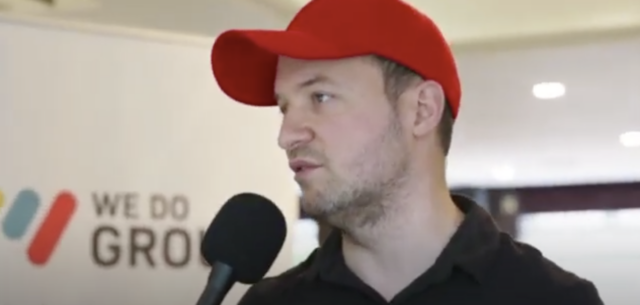
Because a Warm Body in a Chair Isn’t Enough
You’ve got a finance role to fill.
- The job spec is written.
- Recruiters are sending over CVs.
- Interviews are booked.
But here’s the problem:
- You’re not just looking for “someone”—you need the right person.
- A bad hire could cost you more than leaving the role empty.
- And if they’re just here to collect a paycheck, they’ll be gone in a year.
Here’s how to recruit finance professionals who actually add value—not just another name on the payroll.
1. Stop Hiring for ‘Experience’—Start Hiring for Impact
Just because someone has 10 years of finance experience doesn’t mean they’ve ever added real value.
What too many companies get wrong:
- Prioritising years of experience over commercial thinking.
- Hiring based on a CV that lists responsibilities, not achievements.
- Assuming past job titles = future success.
What actually matters:
- What they’ve done with their experience, not just how long they’ve worked.
- How they’ve driven profitability, cost savings, or efficiency.
- Their ability to influence business decisions, not just produce reports.
How to test this in an interview:
- Ask: “Tell me about a time you made a financial recommendation that changed business strategy.”
- Look for measurable achievements, not just tasks completed.
- See if they can explain finance concepts in a way that non-finance people understand.
📢 Rule of thumb: If they can’t tell you how they’ve added value in the past, they won’t do it in the future.
2. Look for Commercial Thinkers, Not Just Number Crunchers
A finance professional who only cares about getting the numbers right isn’t enough.
If they don’t understand the wider business, they won’t make an impact.
Red flags to watch for:
- They focus only on compliance and reporting, not business growth.
- They struggle to explain how finance drives company strategy.
- They see finance as a ‘support function’ rather than a commercial driver.
What strong candidates do:
- Use financial data to make recommendations, not just reports.
- Understand how finance connects to sales, operations, and marketing.
- Challenge business decisions with financial insights, not just facts.
How to test this in an interview:
- Ask: “If you saw a trend in financial data that suggested a risk or opportunity, what would you do?”
- Give them a real business case and see how they approach it.
- Look for curiosity—do they ask smart questions about your business?
📢 Rule of thumb: If they don’t think commercially, they won’t drive real impact.
3. Prioritise Problem-Solvers Over ‘Process-Doers’
A great finance hire doesn’t just follow processes—they improve them.
What weak candidates do:
- Follow instructions without asking if there’s a better way.
- Get stuck in routine work without looking for improvements.
- Only focus on what’s in front of them, not what could be optimised.
What strong candidates do:
- Challenge inefficiencies and look for automation opportunities.
- Proactively improve processes instead of waiting to be told.
- Help the business scale by making finance smarter, not just bigger.
How to test this in an interview:
- Ask: “What’s one process you improved in your last role?”
- Look for automation experience—do they embrace tech or avoid it?
- See if they take ownership of problems or just wait for instructions.
📢 Rule of thumb: If they don’t challenge the status quo, they won’t drive real change.
4. Make Sure They Can Communicate Financial Insights Clearly
If they can’t explain finance in a way that makes sense, they won’t be able to influence decisions.
Finance should be a translator between numbers and business strategy—not a barrier.
What weak finance professionals do:
- Dump financial reports on leadership without context.
- Use jargon that nobody outside finance understands.
- Struggle to get buy-in for financial recommendations.
What strong finance professionals do:
- Turn complex data into clear, actionable insights.
- Adapt their communication style for different audiences.
- Help leadership teams make smarter decisions, not just provide numbers.
How to test this in an interview:
- Ask: “Explain a financial concept (e.g., cash flow) to me as if I were a non-finance person.”
- See if they can break down numbers into a clear story.
- Look for confidence—do they sound like someone leadership would listen to?
📢 Rule of thumb: If they can’t explain finance to non-finance people, they won’t add much value.
5. Don’t Just Hire Someone—Give Them a Reason to Stay
Even the best hire won’t stick around if there’s no future for them.
Why finance hires leave too soon:
- No clear career progression.
- A role that doesn’t challenge them.
- A culture that treats finance like a back-office function.
What makes them stay:
- A clear development plan—where can they grow in 12-24 months?
- Involvement in strategic decisions—not just reporting them.
- A workplace where finance is valued, not just tolerated.
How to fix this:
- Talk about long-term opportunities from the first interview.
- Make sure they have access to leadership and big decisions.
- Invest in their development—training, mentorship, and career growth.
📢 Rule of thumb: If they don’t see a future with you, they’ll leave for one somewhere else.
Final Thought: Stop Hiring to Fill a Gap—Start Hiring to Build a Stronger Business
Finance hires should be making an impact, not just keeping the books tidy.
The best companies are:
- Prioritising commercial thinkers over pure technical ability.
- Hiring for problem-solving and communication, not just qualifications.
- Giving finance professionals meaningful work that drives business success.
Want to recruit finance professionals who actually add value?
We Do Benchmark ensures your salaries are competitive—so you attract the right finance talent.
We Do Group finds and secures top-tier finance professionals—before your competitors do.





